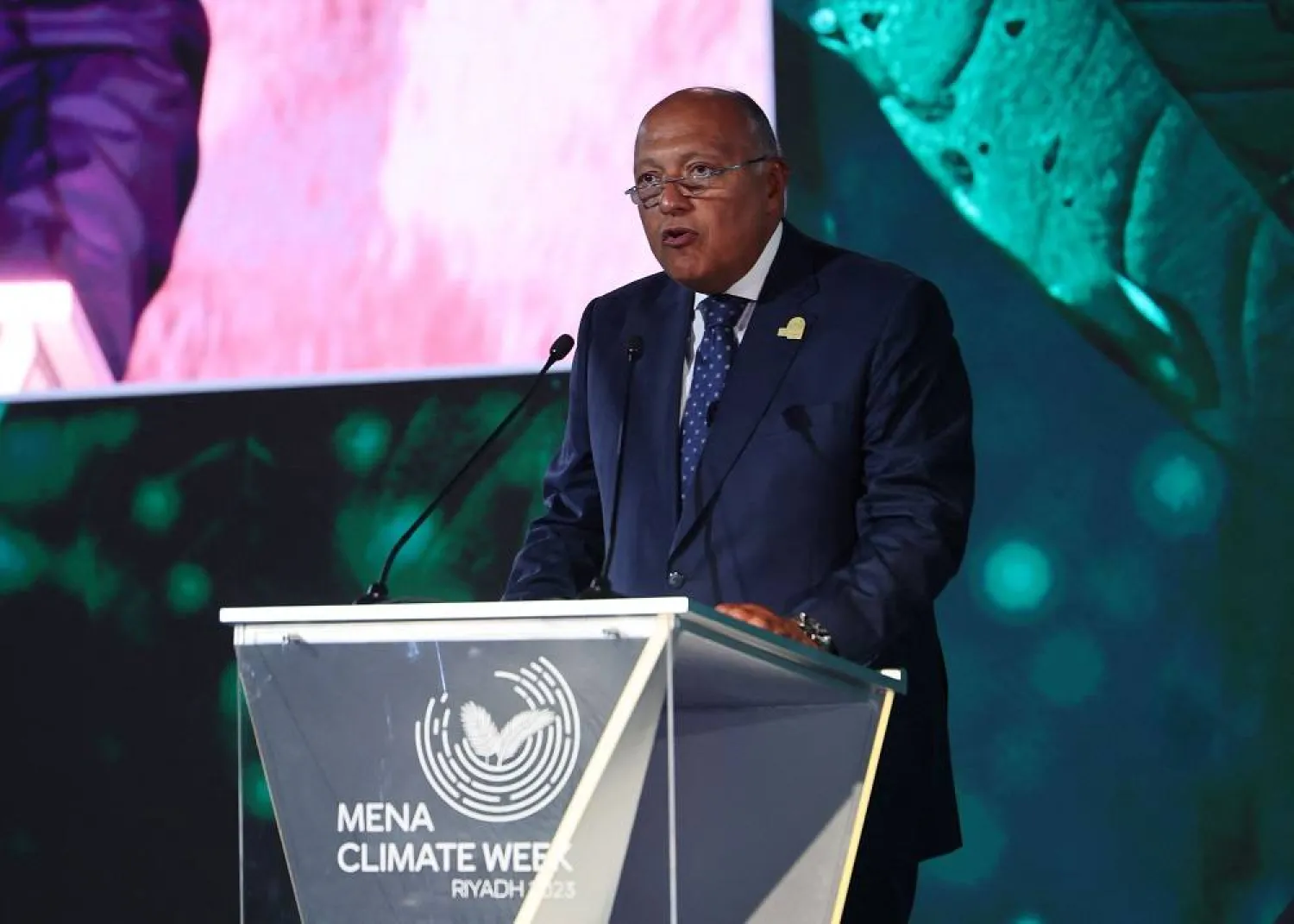The Middle East and North Africa (MENA) Climate Week which kicked off in Riyadh on Sunday witnessed international consensus on unifying efforts to confront climate change.
Several ministers and officials who attended the event stressed that it represents a regional platform to provide solutions and innovations that help in achieving the targets of regional countries and in facing climate change.
Saudi Minister of State for Foreign Affairs Adel al-Jubeir revealed the allocation of more than $186 billion to implement the Saudi Green Initiative.
Al-Jubeir went on to say that the Kingdom was seeking to transform itself through carbon recycling to turn cities into green unpolluted areas.
Egyptian Foreign Minister Sameh Shoukry underlined the importance of holding Climate Week in the Middle East, noting that the event is bound to yield partnership and cooperation related to climate, as well as stress the importance of sharing responsibility and adapting to climatic conditions.
The minister pointed out that Climate Week highlights the main elements of climate change and the need for action plans and underscores the importance of unifying efforts to come up with solutions and capacity-building.
“We cannot stop using the sources of energy we are using today before securing alternative, sustainable sources of energy for the future,” said UAE Energy Minister Suhail Al-Mazrouei.
“The Middle East and North Africa region is at a crossroads, facing not only the devastating impacts of climate change, but also the challenge of transitioning their economies to ensure prosperity in a 1.5C aligned world,” said Simon Stiell, Executive Secretary of UN Climate Change.
Aramco president and CEO Amin Nasser stated that there is a gap between the needs of developing and developed countries.
He added that the company seeks to achieve balance and to achieve carbon neutrality and reduce emissions in 2050.
He noted that Climate Week provides a platform to highlight regional solutions and innovations, paving the way for reinforcing cooperation between countries, sectors, and specializations.
The third ministerial session of the event discussed the need for sustainable development and adaptation to climate challenges to ensure a sustainable and clean future in MENA.
The first session focused on Saudi Arabia’s ongoing efforts to achieve the Paris Agreement's goals and a more sustainable world.
The Climate Week reinforces the significance of circular frameworks in reducing emissions and the role this plays in boosting the economy and supporting sustainability.
Saudi Arabia is aware of the significance of a circular economy in reducing emissions and building economic competency. Its Circular Carbon Economy National Program supports the state’s commitment to achieve a flexible and clean energy system.









